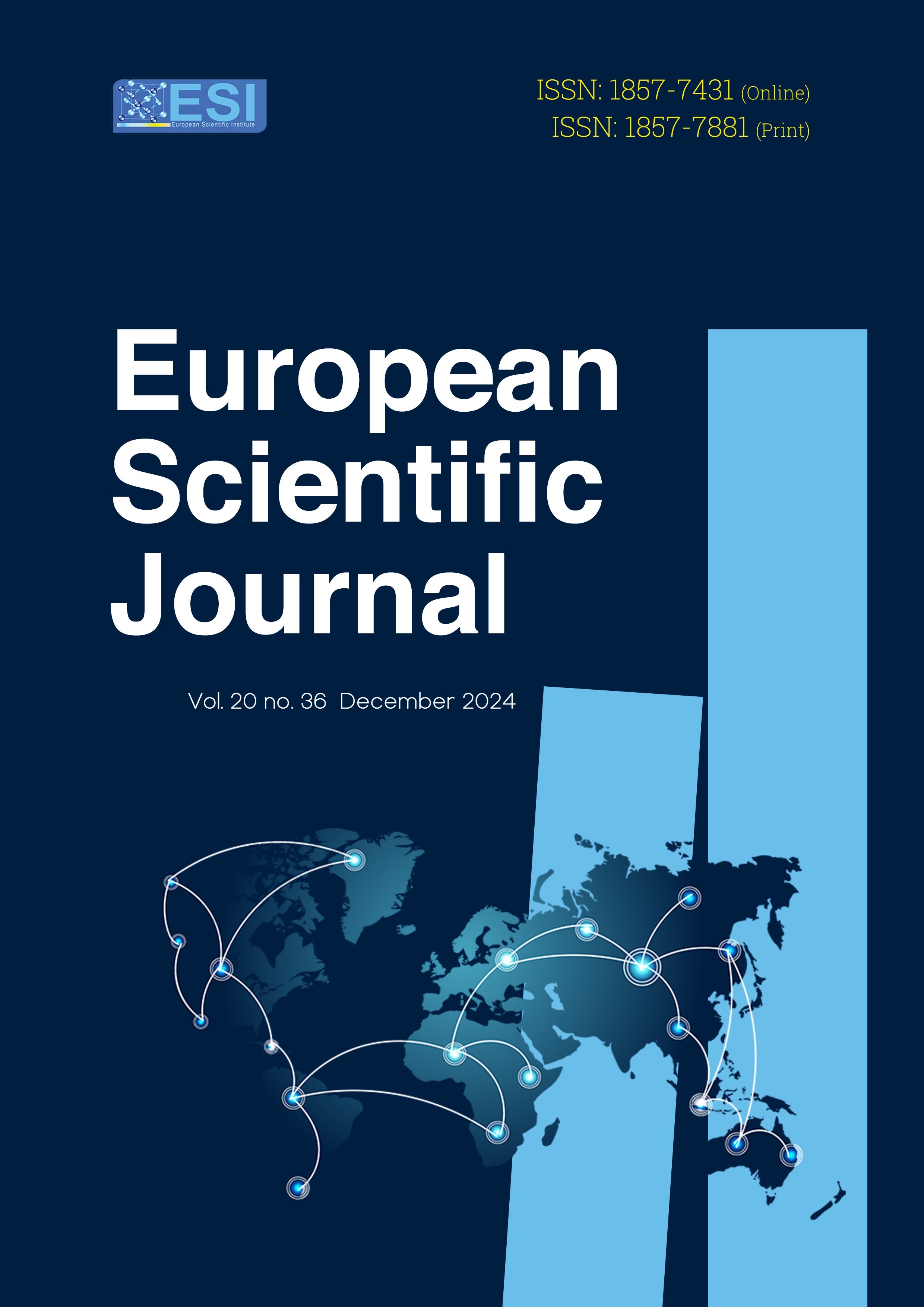The Big Catch-up: Addressing Zero-Dose Children as a Surrogate of Vaccination Disruptions During Public Health Emergencies: A review of literature
Abstract
The COVID-19 pandemic triggered an unprecedented backslide in global immunization programs, increasing the number of zero-dose children-those who have not received any vaccinations—from 13.3 million in 2019 to 18.1 million in 2021. This surge poses a significant threat to public health, especially in low- and middle-income countries (LMICs), where healthcare systems are already fragile. This scoping review focused on the impact of the pandemic on childhood immunization, with a focus on zero-dose children, and to identify effective interventions for rebuilding resilient immunization systems. Data from WHO, UNICEF, and Gavi were comprehensively reviewed. The IRMMA (Identify, Reach, Monitor, Measure, Advocate) framework was used to structure the analysis of evidence-based interventions across diverse settings. Consolidated findings show that in 2022, 20.5 million children missed one or more vaccines, with 14.3 million classified as zero-dose children. Despite improvements from 2021, these numbers remain higher than pre-pandemic levels. Countries such as Nigeria (2.3 million zero-dose children), India (1.1 million), and Ethiopia (1.1 million) are most affected.
Our review highlights the importance of strengthening health systems and leveraging innovative strategies such as drone delivery and digital health platforms for reaching zero-dose children. To ensure sustainability, policy interventions must focus on integrating immunization efforts into national healthcare frameworks. This includes prioritizing workforce development, enhancing supply chain management, and fostering partnerships with community leaders to rebuild trust and address vaccine hesitancy. Specific interventions, such as deploying mobile vaccination units, implementing culturally tailored health messaging, and utilizing real-time monitoring technologies, are recommended to target under-reached populations. The pandemic has exacerbated existing vulnerabilities in immunization systems but coordinated global efforts, like the "Big Catch-Up" campaign, offer a pathway to recovery and long-term sustainability. This scoping review underscores the urgent need for robust, context-specific policies and targeted interventions to bridge the immunization gap and protect vulnerable populations from vaccine-preventable diseases.
Downloads
PlumX Statistics
References
2. Fahrni, M. L., Ismail, I. A., Refi, D. M., Almeman, A., Yaakob, N. C., Saman, K. M., Mansor, N. F., Noordin, N., & Babar, Z. U. (, 2022). Management of COVID-19 vaccines cold chain logistics: A scoping review. Https://doi.org/10.1186/s40545-022-00411-5. Journal of Pharmaceutical Policy and Practice, 15(, 1), 16. https://doi.org/10.1186/s40545-022-00411-5
3. Garg, Rajat; Bhargava, Anita; Singh, Snehil Kumar. (, Jan-Jun2024). Capacity Building in Public Health Emergency Management: A Crucial Pillar for Global Health Security. 28–32. https://doi.org/10.4103/JNMO.JNMO_10_24
4. Garnelo, L., Parente, R.C.P., Puchiarelli, M.L.R. et al. (, 2020). Barriers to access and organization of primary health care services for rural riverside populations in the Amazon. Int J Equity Health, 19(, 54). https://doi.org/10.1186/s12939-020-01171-x
5. GAVI The Vaccine Alliance. (2022, July 29). Immunization in lower-income countries: Pandemic leads to a decline in coverage but signs of recovery emerge. https://www.gavi.org/news/media-room/immunisation-lower-income-countries-pandemic-leads-decline-coverage-signs-recovery
6. Kapuria B, Sami Hamadeh R, Mazloum F, Korbane JA, Aung K, Kamal D, Chamoun N and Syed S. (, 2024). Achieving sustainable, environmentally viable, solarized vaccine cold chain system and vaccination program—An effort to move towards clean and green energy-driven primary healthcare in Lebanon. Frontiers in Health Services, 4. https://doi.org/10.3389/frhs.2024.1386432
7. Mahmoud, Amina & Singh, Neha & Abdelmagid, Nada & Sabahelzain, Majdi & Checchi, Francesco & Mounier-Jack, Sandra & Nor, Barni. (, 2024). Assessing Vaccination Delivery Strategies for Zero-Dose and Under-Immunized Children in the Fragile Context of Somalia. Vaccines. 12(, 154). http://dx.doi.org/10.3390/vaccines12020154
8. PAHO. (, n.d.). Factsheet: WHO/UNICEF Estimate of National Immunization Coverage 2022. PAHO. https://www.paho.org/en/documents/factsheet-whounicef-estimate-national-immunization-coverage-2022
9. Sharma, Mohit; Singh, Snehil K.; Sharma, Lokesh, Dwiwedi, Manish K.; Agarwal, Deepika; Gupta, Gajendra K.; Dhiman, Ranjit. (, 2021). Magnitude and causes of routine immunization disruptions during the COVID-19 pandemic in developing countries. Journal of Family Medicine and Primary Care, 10(, 11), 3991–3997. https://doi.org/10.4103/jfmpc.jfmpc_1102_21
10. Singh, S. K., Gupta, G. K., Agrawal, D., Zaidi, S. H. N., Batra, J., Sharma, L., Juneja, S., Joshi, K. J., Sethy, G., Haile, D. A., & Syed, S. (, 2024). Leveraging Resource Centers for Strengthening Immunization Supply Chain. Cureus, 16(, 4). https://doi.org/10.7759/cureus.58966
11. UNICEF. (, n.d.). Zero-Dose Children: The alarming reality of missed vaccinations highlighted in UNICEF’s 2023 World Immunization Week Dashboard. UNICEF.
12. UNICEF. (, 2022). Every child survives and thrives -Global Annual Results Report. UNICEF. https://www.unicef.org/media/143436/file/Global%20annual%20results%20report%202022%20:%20Goal%20Area%201.pdf
13. WHO. (, n.d.). Childhood Immunization Post COVID-19. WHO. https://www.who.int/news/item/18-07-2023-childhood-immunization-begins-recovery-after-covid-19-backslide
14. WHO. (2024, July 15). Global childhood immunization levels stalled in 2023, leaving many without life-saving protection. https://www.who.int/news/item/15-07-2024-global-childhood-immunization-levels-stalled-in-2023-leaving-many-without-life-saving-protection
15. WHO, & UNICEF, and Gavi, The Vaccine Alliance,. (2023, May). The Big Catch-Up: An Essential Immunization Recovery Plan FOR 2023 AND BEYOND. https://www.immunizationagenda2030.org/images/documents/9789240075511-eng.pdf
Copyright (c) 2024 Sadaf Khan, Gajendra Kumar Gupta, Deepika Agrawal, Syed Hasan Nawaz Zaidi, Jyoti Batra, Sabin Syed, Lokesh Sharma, Maureen Khambira, Dereje Ayalew Haile, Ghanshyam Sethy, Snehil Kumar Singh

This work is licensed under a Creative Commons Attribution 4.0 International License.








